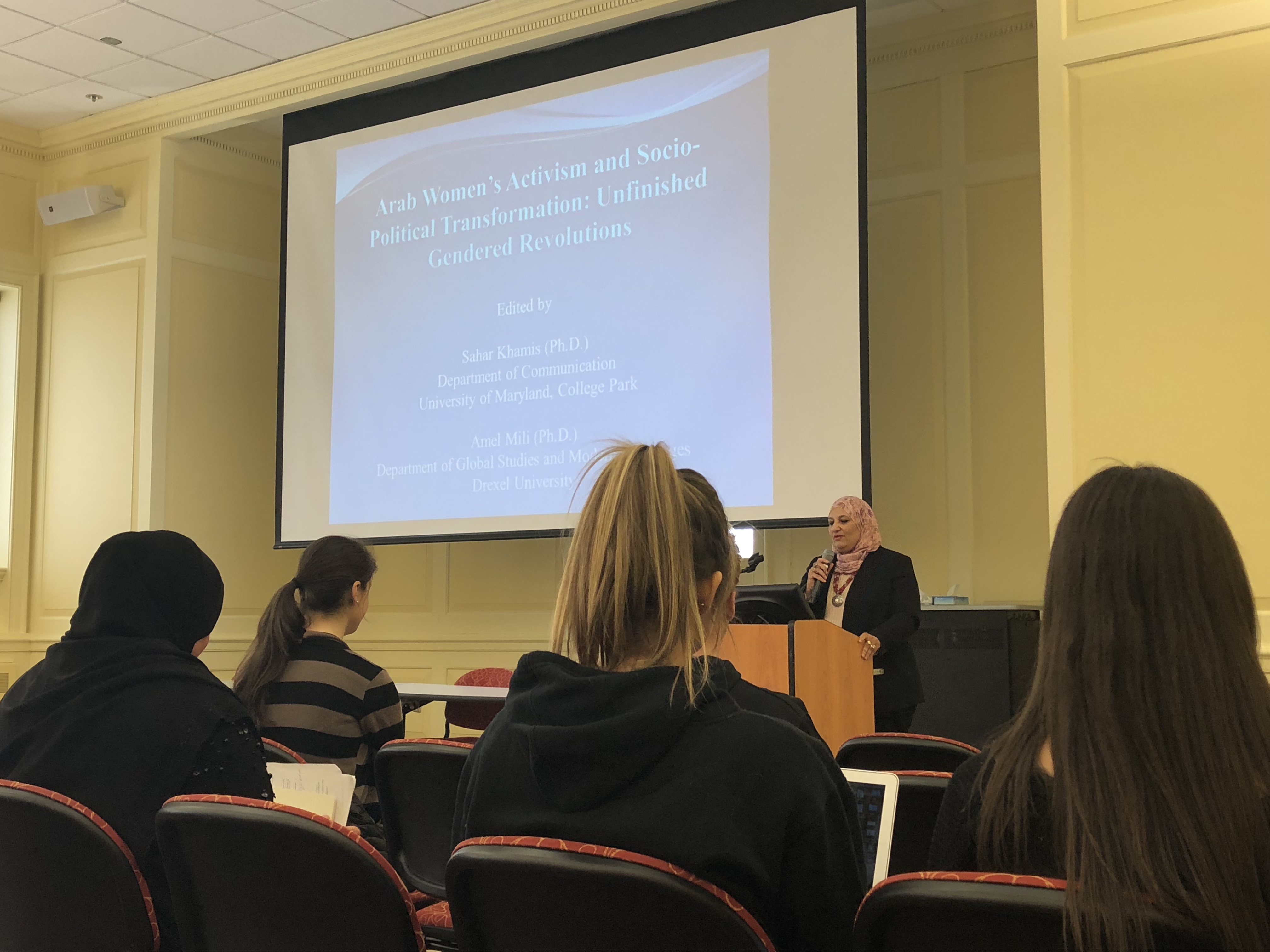By Isabel Cleary
For The Diamondback
Students at the University of Maryland had the opportunity Thursday to learn more about the stigmas and struggles facing Arab and Muslim women from Sahar Khamis, a professor at this university.
Khamis is also a co-editor of and contributor to the book, Arab Women’s Activism and Socio-Political Transformation. During the event, Khamis discussed the main points of the book, addressing various topics including negative imagery, political struggles and other issues many Arab and Muslim women face.
“The book talks about three parallel struggles,” Khamis said. “The political struggle to free their countries from domination, from hegemony and dictatorship from autocratic regimes. The social struggle to fight patriarchy and misogyny and sexism and all forms of social oppression that have tried to marginalize and sideline women.”
Khamis also addressed some of the legal troubles many of these women face, saying this issue is not often covered by the media. In many Arab countries, women’s labor in the home is not legally documented, Khamis said, so many times their labor is seen as informal.
“I believe it has been a blind hole in the literature of women and Arab women,” Khamis said. “When you change the law, you give women new empowerment.”
Senior Sarah Miller, a biology major, said she wanted to know more about the struggles these women face.
“I wanted to learn more about women in the Arab world,” Miller said. “There’s a lot of stigma around the topic, like are they oppressed, and I don’t think that’s the full story.”
Aaron Ginoza, an employee of University Libraries, also wanted to learn more about the treatment of women in these countries, he said, especially because he has friends in the Middle East.
“I am interested for a number of reasons: I have friends, female friends, in the Middle East [that] I know have been kind of involved in activism, so I am curious to get the global view of what is going on,” Ginozasc said.
Some of the student attendees, like junior criminology and criminal justice major Maggie Kilada, said they learned a lot about gender issues during the discussion.
“There is discrimination towards all women, but definitely when you get into talking about women of color,” Kilada said. “There’s differences in the types of discrimination that occurs.”
However, Khamis said she believes this university is doing great work to make this campus an accepting place.
“University of Maryland has been an excellent campus in terms of diversity and inclusion efforts,” Khamis said. “We do not shy away from talking about issues such as sexism, sexual harassment.”
In efforts to improve the situation of these women, Khamis said women must all work together to overcome discrimination and marginalization.
“Working together does not mean we have to see things eye-to-eye,” she said. “We don’t have to be identical for God’s sake in order to work together … but we see these differences as diversity.”



